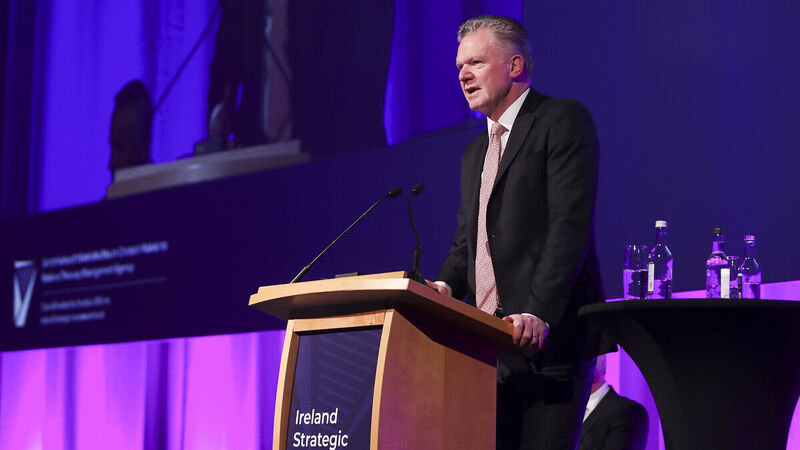State raises €850m more of free money to finance huge economic cost of Covid-19 lockdowns

Conor O’Kelly, CEO of the National Treasury Management Agency (NTMA),
The Government continues to raise millions from investors at little or no cost to the State, boosting hopes the huge additional debt entailed in the jump in unemployment amid the new Covid-19 lockdown can be financed through next year.
The National Treasury Management, the NTMA, said it completed its debt-sales programme for the year by tapping €850m from a bond that matures in 10 years, at a negative interest rate or yield of 0.20%.
The negative yield means that investors during this global crisis are prepared to pay the State money for keeping their money safe, and the Government will effectively pay back less than it borrowed.
Investors paid a yield that was for them even deeper in the red than they paid in October from the same 2030 bond.
Also on Thursday, the debt agency raised €400m by tapping its 30-year bond that matures in 2050.
In this case, the NTMA will pay investors a positive interest rate of 0.42%, but even that cost is lower than the yield it paid out in October by tapping the same 2050 bond.
The outcome of the bond auctions is good news for the Government which is taking on billions in additional debt to finance the huge economic costs entailed in fighting Covid-19.
Revenue said on Thursday it has paid out almost €730m to 405,600 employees whose wages are now subsidised by the State since the launch of the new Employment Wage Subsidy Scheme in the summer.
The Department of Social Protection said earlier this week it paid out €99m in the past week as the number of people on the Pandemic Unemployment Payment scheme rose to over 342,500 under the new lockdown.





